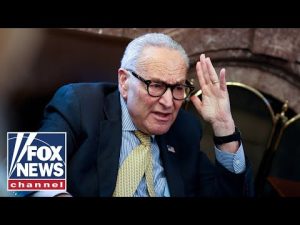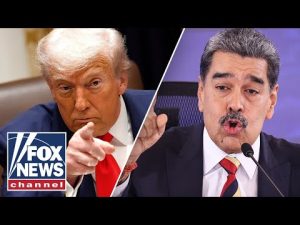In the ongoing saga of tackling the menace of Mexican drug cartels, it seems there’s a new sheriff in town, and his name is Congressman Dan Crenshaw. Leading the charge from his perch at the House Intelligence Committee’s task force, Crenshaw is shaking things up with a fresh perspective on the fight against these criminal organizations. For far too long, the cartels operated like a shadowy terror group, destabilizing regions while America watched from the sidelines under past administrations. But not anymore. This issue isn’t just about illicit drugs crossing borders; it’s a matter of safeguarding the stability and prosperity of our neighbor, Mexico, which in turn secures our own interests.
What makes this renewed approach different from the failed “War on Drugs” of yesteryear is understanding the enemy we’re up against. The Trump administration, with its characteristic no-nonsense attitude, designated these cartels as foreign terrorist organizations. This reclassification highlights the reality that these groups aren’t just petty criminals—they are insurgents with a stronghold right at our doorstep. The cartel issue dates back to the early 1900s, so it’s high time America takes a proactive stance with strategies that align more with counter-terrorism than mere policing.
President Trump wasted no time when he took office, rapidly implementing measures to choke off the cartels’ primary revenue streams. A robust and assertive border policy has done wonders in curtailing their operations. The administration’s willingness to tackle such issues head-on has been a breath of fresh air, especially for those who lived through the previous administration’s inaction. Trump’s crew recognized what previous leadership did not—that Mexico really matters. For those still scratching their heads, think of Mexico as America’s most important neighbor, whose stability directly impacts our national security.
In Congress, however, there’s room for improvement. Despite the admirable strides made by President Trump and those who understand the critical nature of this threat, some factions remain blissfully unaware or simply indifferent. Crenshaw’s mission is to jolt Congress into action, to get them to see these grave matters not as blurry background noise, but as urgent issues requiring a united front. American interests don’t stop at the water’s edge, contrary to popular opinion. In fact, they extend into the Caribbean, where Venezuelan mischief makers and their Cuban allies fuel this regional turmoil.
Speaking of which, the dalliances of the Venezuelan regime with drug trafficking are enough to make any decent American shake their head in disbelief. Driven by desperation and the allure of quick cash, the highest ranks under Maduro are filled with traffickers doing their worst. Their involvement in the trade is as clear as day, underscoring the chaos they preside over. President Trump’s pressure on Venezuela is not just appropriate; it’s necessary. The world must know that the United States will not tolerate such villainy in our hemisphere, a message that extends to China, whose creeping influence is rightly blocked at every turn.
In a nutshell, while strides have been made, there’s still work to be done in the fight against these cartels. The Trump administration has shown they mean business, and so should Congress. Crenshaw and his allies are leading the charge, ensuring America doesn’t just sit back and watch. The stakes are high, and the time to act is now. After all, a stable, prosperous Mexico isn’t just a pipe dream—it’s an imperative step toward a safer, more secure North America.







